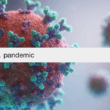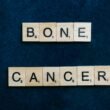
In today’s fast-paced world, it’s easy to overlook our health and dismiss potential warning signs. However, early detection is crucial when it comes to something as serious as rectal cancer. Understanding the early warning signs can make all the difference in the battle against this disease. This comprehensive guide explores the seven key symptoms for rectal cancer that you should never ignore.
From persistent rectal bleeding to unexplained weight loss, these symptoms can often be subtle, but they should never be taken lightly. By familiarizing yourself with these warning signs, you can empower yourself to take proactive steps toward early detection and potentially life-saving treatment. So, let’s dive in and equip ourselves with the knowledge needed to recognize the early signs of rectal cancer. Remember, knowledge is power regarding our health, and every individual deserves a fighting chance against this formidable opponent.
Early detection of symptoms for rectal cancer
Early detection is paramount for any form of cancer, and rectal cancer is no exception. Detecting rectal cancer in its early stages greatly increases the chances of successful treatment and long-term survival. By recognizing the early warning signs, individuals can seek medical attention promptly, leading to faster diagnosis and intervention. Additionally, early detection may provide a wider range of treatment options, as advanced stages of rectal cancer can limit the available choices. It’s crucial to understand that the sooner rectal cancer is detected, the greater the chances of a positive outcome. Therefore, knowing the early warning signs can be life and death.
Common risk factors for rectal cancer
While rectal cancer can affect anyone, certain factors can increase the risk of developing the disease. Age is a significant risk factor, most cases occurring in individuals over 50. Moreover, a history of colorectal cancer or polyps can elevate the risk. Lifestyle choices such as a diet high in red or processed meats, low fiber intake, sedentary behavior, obesity, and smoking are also associated with an increased risk of rectal cancer. Awareness of these risk factors is crucial, as they can help individuals understand their susceptibility to the disease and take appropriate preventive measures.
Symptoms of rectal cancer
Rectal cancer often presents with various symptoms, although some individuals may experience no symptoms in the early stages. However, paying attention to any changes in bowel habits is important, as they can indicate underlying issues. Common symptoms include persistent rectal bleeding, blood in the stool, changes in stool consistency or shape, abdominal pain or discomfort, unexplained weight loss, fatigue, and a feeling of incomplete bowel emptying. While these symptoms can be attributed to other benign conditions, it’s essential to consult a healthcare professional if they persist or worsen over time.
Key symptoms for rectal cancer
1. Persistent rectal bleeding: Rectal bleeding is a common symptom of rectal cancer. It may manifest as blood in the stool or bright red blood during bowel movements. While rectal bleeding can be caused by various factors, such as hemorrhoids or anal fissures, it should never be ignored, especially if it persists or is accompanied by other symptoms.
2. Changes in bowel habits: If you notice sudden changes in your bowel movements, such as diarrhea, constipation, or a persistent change in stool consistency or shape, it could be a sign of rectal cancer. These changes can occur due to a tumor obstructing the rectum or altering normal bowel motility.
3. Abdominal pain or discomfort: Persistent abdominal pain or discomfort, particularly in the lower abdomen, can indicate rectal cancer. This pain may be accompanied by cramping, bloating, or a feeling of fullness. If you experience these symptoms, you must consult a healthcare professional for further evaluation.
4. Unexplained weight loss: Losing weight without intentional dietary changes or increased physical activity can be a warning sign of various health conditions, including rectal cancer. Unexplained weight loss is often a symptom of advanced-stage cancer and should not be ignored.
5. Fatigue: Feeling excessively tired or fatigued, even after adequate rest, can be a symptom of rectal cancer. Cancer-related fatigue is common and can be caused by the body’s immune response to the disease. If you experience persistent fatigue, it’s important to consult a healthcare professional for proper evaluation.
6. Feeling of incomplete bowel emptying: It could be a sign of rectal cancer if you consistently feel like you haven’t completely emptied your bowels after a bowel movement. This feeling may be accompanied by a constant urge to have a bowel movement or a sensation of rectal pressure.
7. Anemia: Rectal cancer can cause chronic, slow bleeding, leading to iron deficiency anemia. Symptoms of anemia include fatigue, weakness, pale skin, and shortness of breath. If you experience these symptoms, especially with other warning signs, seeking medical attention promptly is essential.
Understanding the warning signs
Recognizing the warning signs of rectal cancer is crucial for early detection and timely intervention. While the symptoms may vary from person to person, it’s important to be vigilant and seek medical advice if any of the key symptoms persist or worsen over time. Remember, early detection can significantly impact the outcome of the disease and increase the chances of successful treatment.
When to seek medical help
If you experience any key symptoms of rectal cancer, it’s important not to delay seeking medical help. Consult a healthcare professional if you notice persistent rectal bleeding, changes in bowel habits, abdominal pain or discomfort, unexplained weight loss, fatigue, a feeling of incomplete bowel emptying, or symptoms of anemia. Early intervention can make a significant difference in the prognosis of rectal cancer.
Diagnostic tests for rectal cancer
Healthcare professionals may recommend various diagnostic tests to confirm the diagnosis if rectal cancer is suspected. These tests may include a physical examination, blood tests, stool tests, colonoscopy, sigmoidoscopy, imaging tests such as CT scans or MRI, and biopsy. The results of these tests will help determine the presence and extent of rectal cancer, guiding the course of treatment.
Treatment options for rectal cancer
The treatment options for rectal cancer depend on the stage of the disease and individual factors. Treatment may involve surgery to remove the tumor, radiation therapy, chemotherapy, targeted therapy, or a combination of these modalities. The goal of treatment is to remove the cancer, prevent its spread, and restore normal bowel function. Treatment plans are tailored to each individual, considering factors such as cancer stage, overall health, and personal preferences.
Preventive measures and lifestyle changes
While preventing rectal cancer is impossible, certain lifestyle changes can help reduce the risk. Quitting smoking, maintaining a healthy weight, engaging in regular physical activity, and adopting a diet rich in fruits, vegetables, and whole grains can lower the risk of developing rectal cancer. Additionally, regular screening for colorectal cancer, especially for individuals with risk factors, can aid in early detection and intervention.
Frequently Asked Questions
Can rectal cancer cause pain?
Yes, rectal cancer can cause pain. This can include abdominal pain, rectal pain, or discomfort in the lower abdomen. However, pain is not a common early symptom of rectal cancer and usually occurs in more advanced stages of the disease.
Does rectal cancer cause fatigue?
Yes, rectal cancer can cause fatigue, especially if the cancer causes chronic blood loss that leads to anemia.
Can rectal cancer cause weight loss?
Yes, unexplained weight loss can be a symptom of rectal cancer, especially in the later stages. This can be due to a loss of appetite or the body's increased energy needs to fight the cancer.
What are the symptoms of advanced rectal cancer?
In addition to the symptoms mentioned above, advanced rectal cancer can cause symptoms such as a noticeable lump in the abdomen or rectum, severe fatigue, shortness of breath, and a significant loss of weight and appetite.
Can rectal cancer symptoms come and go?
Some symptoms of rectal cancer, like changes in bowel habits or rectal bleeding, can come and go. However, any persistent changes should be evaluated by a healthcare professional.
Can you have rectal cancer without bleeding?
Yes, it's possible to have rectal cancer without noticeable bleeding. Not all people with rectal cancer experience visible rectal bleeding, especially in the early stages of the disease.
Can rectal cancer cause back pain?
While it's not a common symptom, rectal cancer can cause back pain if it spreads to nearby structures or causes a blockage.
How long can you have rectal cancer without knowing?
Rectal cancer can develop over several years without causing noticeable symptoms. This is why regular screenings, such as colonoscopies, are so important for early detection.
Should I see a doctor if I have these symptoms?
Yes, you should consult a healthcare professional if you're experiencing any of these symptoms, especially if they're persistent or worsening. While these symptoms can be caused by conditions other than rectal cancer, getting them checked out is important.
Conclusion
It is crucial to detect and treat rectal cancer early to save lives. Therefore, it is essential to know the primary symptoms and risk factors associated with this disease. Some of the most common warning signs of rectal cancer are persistent changes in bowel movements, such as diarrhea or constipation, rectal bleeding, abdominal pain or discomfort, fatigue, and unexplained weight loss.
Moreover, certain risk factors, including age, family history of colorectal cancer, obesity, smoking, and a diet high in red or processed meats, can increase the chances of developing rectal cancer. If you experience any of these symptoms or have any of these risk factors, it is vital to seek medical attention immediately. Remember, early detection and proactive measures can significantly impact the successful treatment of rectal cancer. Therefore, stay informed, stay vigilant, and prioritize your health.



